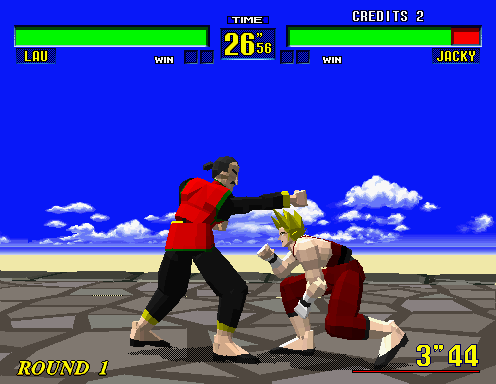Seek Solutions, Not Blame
In all these cases, you’ll notice that a person can clearly identify the flaws in their own game, as well as pointing out the flaws of the game itself. Given enough time and effort, you can find the flaws in everything, and the time spent with video games via learning their systems makes that plain enough for most people. Fighting game experts can point out which games work at a competitive level (Super Street Fighter II Turbo, Virtua Fighter, King of Fighters XIII) while also clearly identifying games with glaring flaws (Street Fighter III’s first iterations, Soul Calibur III, King of Fighters XII). Some (not most, unfortunately) critics could make a genre comparison of what games come out on top based on their experience and information.  Given this level of exhaustive categorization (see: GameFAQs), why do video game fans bother to get angry? There is always a solution to the problems presented in any well-designed game, even if that option isn’t something you necessarily enjoy. Since I define “fun” regarding video games as “the enjoyment of mastering fair game dynamics”, every game fits into that model on some level. Video games demand effort, and if you do not put in that effort, you will end up frustrated. It’s often not the game’s fault, and an inability to recognize it remains an unnecessary component. Well, except for momentary lapses when you feel that you deserved the victory. It usually serves as a motivation for the next play!
Given this level of exhaustive categorization (see: GameFAQs), why do video game fans bother to get angry? There is always a solution to the problems presented in any well-designed game, even if that option isn’t something you necessarily enjoy. Since I define “fun” regarding video games as “the enjoyment of mastering fair game dynamics”, every game fits into that model on some level. Video games demand effort, and if you do not put in that effort, you will end up frustrated. It’s often not the game’s fault, and an inability to recognize it remains an unnecessary component. Well, except for momentary lapses when you feel that you deserved the victory. It usually serves as a motivation for the next play!
Should Game Developers Minimize Frustration?
The researchers of this new study linked above, however, also had this to say:
“If developers can design more effective game-play processes then it could be possible to minimise a player’s feelings of exasperation and irritation – admittedly something good developers will want to achieve in any case,” said Richard Wilson. “Indeed, creating a game that is challenging without feeling unfair or frustrating is often the mark of a great developer.”
I’m not exactly sure whether video games should attempt to minimize a player’s frustrations. Some games are inherently designed to cause frustration, rather than alleviate it. If you assume video games as a primarily recreational activity, I suppose it makes sense to remove any elements preventing “recreation”, but many games don’t bother. They promote mastery, and sometimes mastery requires not enjoying yourself at all! I imagined people who went through graduate school for PhDs to study these results in the first place would understand that, but the eternal label of “game” stands in the way.
![phd logo [Purple CMYK]](https://theologygaming.com/wp-content/uploads/2014/04/PHD-Logo-high-res-1024x634.jpg)
A game like Dark Souls pretty much requires it, and the frustration turns into joy and community. Would it be quite as satisfying without the lack of documentation, which the players of the game eventually assemble? Probably not. The excessive devotion to these strange subcultures makes perfect sense in this context. The frustration adds to the experience, as long as you recognize your own flaws in the process and seek to improve them. Help exists everywhere; you just need to humble yourself to victory. And, perhaps, call on God to help you out. Works for me, anyway. The moment you lean on your own understanding often ends up a massive failure. Heck, I’ve been praying for victory in video games since I was a child, and I’m not going to quit now. God does care about the slightest thing regarding your life, even if you do not believe that as an ever present reality. Video games remain a part of that for me.
Trust in the Lord with all your heart And do not lean on your own understanding. In all your ways acknowledge Him, And He will make your paths straight. Proverbs 3:5-6
My success rate’s pretty high. I jest, but I find that an essential element of just about anything. If you can’t pray about it, you can’t figure out what’s wrong with you, and if you can’t figure that out, how will you improve? I’m not saying that such a process of prayer, improvement, and sanctification will result in instant, magical success – just that frustration and anger towards that frustration should lead to something. Mastery works in both video games and real life – you just can’t actually master the latter. That makes it…interesting.
Conclusions
To sum up the points above, one can always point out their own flaws when playing a video game. This requires learning how to play and how to optimize this play through knowledge, which I will call mastery. Mastery comes in various forms, and that depends on the game type. Frustration isn’t necessarily bad, but misdirected frustration is another matter entirely.
